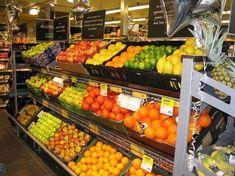
Escalating economic worries, higher prices, a weak dollar and tighter spending will combine to make 2008 a much tougher year for the fresh produce market, industry insiders and sector analysts warn.
“Almost every sector of British business stands at a crossroads as it prepares for the coming 12 months,” said David Pattison of Plimsoll Publishing. “With uncertainty in the economy, some will want to sit tight and do nothing radical. Others will need to cut costs quickly to weather the possible storm. But some who have built up large cash reserves will be looking at this period of difficulty to make acquisitions at a bargain price.”
Duncan Swift, joint head of the food and agribusiness recovery group at Grant Thornton UK, foresees more rationalisation. “In 2008, we are likely to see more consolidation across the different sectors of the fresh produce industry,” warned Swift. “As we have seen in the past, this will mean a degree of business failures and job losses…the pressure for those companies who are consolidating and have introduced process or cost efficiencies is reducing already, but for those who have not, it is increasing.
“It tends to be the bigger players who feel the pressure less, but it is also those who have a relationship-style route to market; either category managers or those who have a greater understanding of consumer needs.”
Plimsoll has calculated that average growth in the fresh produce sector in 2007 has been seven per cent. “This is pretty much in line with our predictions at the start of the year,” said Pattison. “But this growth was by no means universal and 35 per cent of companies actually saw their sales decline. It is important, however, not to confuse sales with profit. Some smaller firms, with a turnover of £3 million or less, lost out on sales but still enjoyed healthy margins. They did so by keeping their costs under control and by carving out a specialist area in the market. These firms have managed to do very nicely for themselves by trading in niche products. This trend has been an important factor since 2006, and I see no reason why it shouldn’t continue.”
Denis Punter, executive chairman of Total Produce, believes the macro-economic situation and the resulting squeeze on consumers will play a major role. “The consumer will be pulling in his horns in 2008,” Punter warned. “People will always have to eat, but I believe they will be more selective about what they eat. The amount of discretionary spend will see people trading down in food.”
Punter also sees the value of the dollar and the overall picture in farming as major factors next year. “This is not just a fresh produce issue. It goes across agriculture. Cereal prices are rising and that is driving up costs for livestock farmers,” he said. “All these factors must come through onto the consumer unless the retailer can buy more effectively. The retailers will be under more pressure in 2008.”